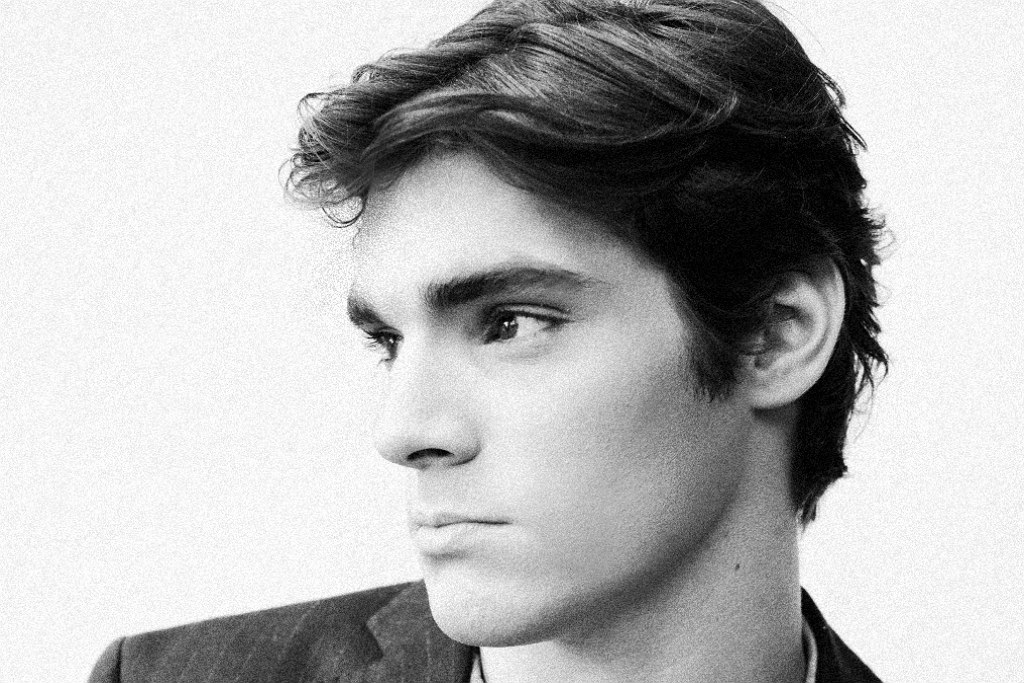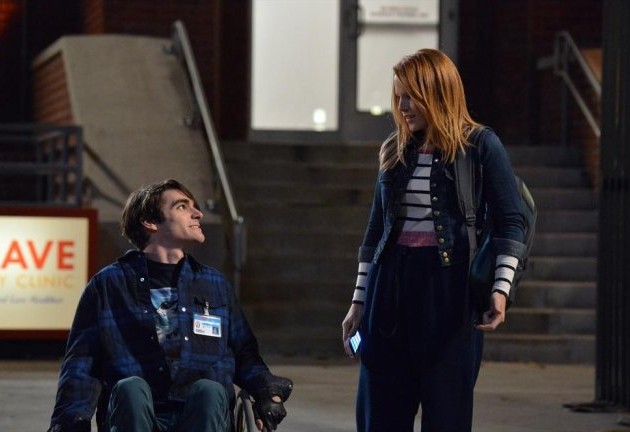“Everyone Has To Deal With Challenges Like These”: An Interview With RJ Mitte
“I remember every [existential] test I’ve been through. I remember every struggle I’ve had, I remember everything that pushed me to the next level of doing what I needed in order to survive.”

RJ Mitte, best known for his role as Walt Jr. on the hit show Breaking Bad – and for modelling shots that adorn the walls of GAP stores around the country – is running a little late. When we meet for our interview, it’s World Cerebral Palsy Day, an event which takes place in more than 50 countries, bringing together the 17 million people with CP and the organisations that support them to raise awareness for the condition.
RJ’s just come away from a morning tea held to celebrate the day with members of Cerebral Palsy Alliance’s Emerging Leaders Program; the notably hard-working disability advocate is also the SAG-AFTRS spokesman for actors with disabilities, the representative for Inclusion In The Arts And Media Of Performers With Disabilities (I AM PWD), and an ambassador for United Cerebral Palsy.
“It’s nice to meet you,” he says with a smile, shaking my hand. A tall, handsome man, Mitte manages to somehow both immediately put you at ease, and project an air of assured confidence. He spent the first day of his first Australian trip having a barbecue at the beach with some friends. “I think that’s pretty much what people do here, right? I’m having a great time.”
We sit down at the Opera House café, and begin to unpick his journey. Born in Louisiana and adopted at an early age, Mitte says he never really saw his cerebral palsy as an issue. He thought every kid had to have the procedures he was having, and that every kid needed physical therapy. But starting at school — and the bullying kids who were there, in particular — changed that. “But everyone has to deal with challenges like these,” he adds. “I just didn’t see mine as being any different.”
His message, I quickly learn, is one of relentless positivity. Anyone can overcome these obstacles, he says; they just need to believe and work hard. That makes it sound as if his struggles were ordinary, of course — they were anything but. When he was only eleven, his single mother was paralysed for several years following a car accident, making him the primary caregiver of both her and his baby sister.
“She dropped me off at school one day,” he recalls. “She was on her way to work, and about halfway [there], she was hit by a car. She was in her car at a stop sign, and another car ploughed into her, doing like 40 miles an hour. It threw her into the intersection, did some damage, and she had to have quite a few spinal surgeries over time.”
I mention that this is a lot of responsibility for an eleven-year-old, but he just shrugs. “It was either take on the responsibility or go back to my grandparents. And I love my grandparents, don’t get me wrong, but it was the first time I had my own room, you know?” He laughs. “We had this little townhouse in Louisiana, and I was like, I can do it, I can change the vials, I can take care of her — so I just started doing it.”
“I never really looked it as a responsibility—it’s what I wanted,” he adds. “I wanted us to have stability and independence, and I think my disability prepared me for that because it allowed me to build that perseverance inside and that willingness to keep fighting. I think when this came up, I just saw it as the next obstacle I had to overcome.”
While they had help in the beginning, by his early teens he was making more money – he landed the role of Walt Jr. when he was just thirteen — and soon became fully financially responsible for his family. “Everyone has these abilities,” he says again. “When you take the materialistic factor out of it—all I wanted was for my family to be well, to be sufficient in what they’re doing—when you come into it with that mindset, you can do anything.”
He credits his grandfather as a source of inspiration. “He grew up with dirt floors. He didn’t have any other option but to succeed, in order to take care of his family, to provide for them. That’s what’s comes from disability, for me, is that you have no choice but to overcome the challenge. The trick is to utilise it, the lesson learned, in every aspect of who you are and what you’re doing, because people forget.”
He uses schools as an example. How many tests do you remember from school? The odds are few to none. When it comes to life lessons, it’s important to focus and grow from each experience. “I remember every [existential] test I’ve been through,” he says. “I remember every struggle I’ve had, I remember everything that pushed me to the next level of doing what I needed in order to survive.”
Speaking of the experiences which elevated his personal growth brings us to his recent acting work, playing Campbell: a pre-med student paralysed from a snowboarding accident, in the TV series Switched at Birth. I ask him what it was like exploring a different physical disability on the show.
“It was definitely an interesting eye-opener,” he says, “as far as processing how this world works, because people are very visual, so they wouldn’t see me—they’d see the chair first, and then me. And that’s something I think is important, to change that mindset.”
RJ has been a model as long as he’s been an actor, recently debuting on the runway for top designers like Vivienne Westwood — and working in that industry reinforced the issue of visibility among the disability community, both in public and in the workplace. “There are models with disabilities—some physical, some mental—but you don’t always hear about them. They keep it quiet because of this idea of perfection, which is not [real]. Nobody is perfect, nobody is ‘normal’ whatsoever. [But] they’re afraid they’ll lose their jobs — and I hate to say, but it’s probably true. People are very prejudiced against what they see as imperfection, and that has to change.”
Mitte takes this message to his work with Shriners Hospital for Children—the same hospital that diagnosed and treated him as a child—spearheading the anti-bullying campaign #CutTheBull. “I started this because there are so many anti-bullying organisations that say ‘stop bullying, prevent bullying, end bullying’ — and here’s the thing, you can’t do that. But what you can do is when you see something, you can stop it. You can step in. I want to replace all those words with YOU. You are the missing factor to help stop it when it’s happening.”
I’m afraid he’s sick of talking about Breaking Bad at this point, but for a pop culture publication, I have to bring it up. “Here’s the thing,” he begins. “I wouldn’t be here without Breaking Bad, so I don’t mind talking about it and I was lucky to have it. It was a great run, I miss it, but it lasted as long as it needed.”
Could he see a spin-off show, with Walt Jr. as a newly-minted millionaire? He laughs. “I don’t think he would accept the money, just out of spite and animosity [regardless of where it came from]. But I think there’s an amazing story to tell with that, because there’s a struggle now. The DEA have taken everything away, and they have to lead these new lives. I think there’s a really big struggle there, and it would make an amazing story.”
There are surely few people as qualified to find amazing stories in big struggles.
–
RJ Mitte’s ‘Overcoming Adversity’
Sydney: Monday October 12, 7.30pm @ The Sydney Opera House — tickets here
Melbourne: Wednesday October 14, 7.30pm @ the Wheeler Centre — tickets here
For more on World Cerebral Palsy Day, check out the website here.
–
Omar Sakr is an Arab Australian poet and freelance writer. Recently, he has written for The Saturday Paper, The Guardian, and the Wheeler Centre, among others. You can follow him on Twitter @OmarjSakr.
